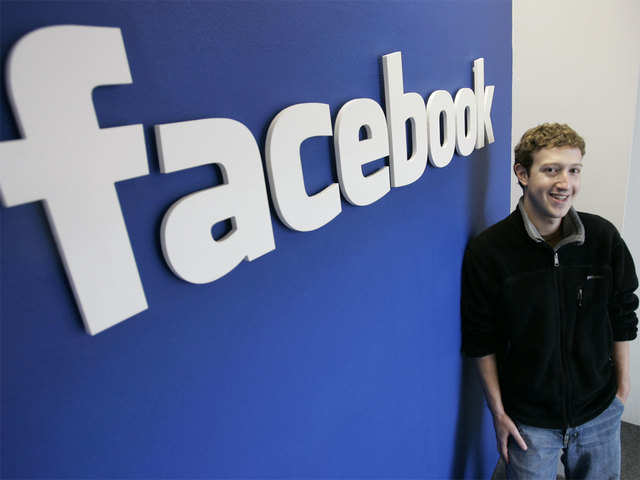Introduction
Facebook, launched on February 4, 2004, by Mark Zuckerberg, along with his college roommates Andrew McCollum, Eduardo Saverin, Chris Hughes, and Dustin Moskovitz, has become a global phenomenon. From its modest beginnings as a college networking platform, Facebook has evolved into the world’s largest social media network, connecting billions of users worldwide. This comprehensive exploration delves into the founding vision, key milestones, features, controversies, and the impact of Facebook on the digital landscape.
Founding Vision and Early Days
In the dormitories of Harvard University, Mark Zuckerberg and his co-founders conceptualized Facebook as a platform to connect students. The initial version, known as “The Facebook,” gained rapid popularity within the Harvard community and soon expanded to other universities. The founders’ vision was to create a virtual space where people could share information, connect with others, and build digital communities.
Expanding User Base and Key Milestones
Facebook’s exponential growth saw its expansion beyond college campuses, reaching a broader audience. Key milestones, such as opening registration to the general public in 2006 and surpassing 1 billion users in 2012, marked its global dominance. The introduction of the News Feed, Timeline, and the acquisition of Instagram and WhatsApp further solidified Facebook’s presence in the social media landscape.
Features and Innovations
Facebook’s success is attributed to its continual evolution and introduction of innovative features. The platform has embraced multimedia content, introducing photo and video sharing. Features like Facebook Live, Marketplace, and Groups have enhanced user engagement. The integration of virtual reality with the acquisition of Oculus VR showcases Facebook’s commitment to staying at the forefront of technological advancements.
Controversies and Ethical Concerns
Despite its success, Facebook has faced a series of controversies. Issues related to privacy, data breaches, and the spread of misinformation have raised ethical concerns. High-profile incidents, such as the Cambridge Analytica scandal, led to increased scrutiny on Facebook’s data practices and sparked debates about user privacy on social media platforms.
Impact on Society and Global Connectivity
Facebook’s impact on society is profound, influencing communication, activism, and digital marketing. The platform has been a catalyst for social movements, connecting people across geographical boundaries. However, concerns about the spread of fake news and its role in shaping public opinion underscore the complex relationship between social media and societal dynamics.
Co-Founder Details and Post-Facebook Ventures
Mark Zuckerberg, the driving force behind Facebook, has remained at the helm as CEO. Co-founder Andrew McCollum pursued ventures in technology and education. Eduardo Saverin, despite a legal dispute over equity, has become a successful investor and entrepreneur. Chris Hughes and Dustin Moskovitz have also ventured into philanthropy and technology, respectively, showcasing the diverse paths taken by Facebook’s co-founders.
Evolution into Meta and Future Prospects
In a significant rebranding move in 2021, Facebook announced its transformation into Meta, emphasizing its focus on the metaverse. The metaverse vision aims to create a collective virtual space that goes beyond traditional social media. As Meta, the company envisions shaping the future of digital interaction, augmented reality, and immersive experiences.
In conclusion
Facebook’s journey from a college networking site to a global social media giant reflects the transformative power of digital connectivity. Despite challenges and controversies, the platform continues to shape how people connect, share information, and engage with the digital world. The evolution into Meta suggests an ambitious future, with potential implications for the way we experience and interact in the digital realm.
Top of Form
FAQs
FAQs about Facebook: Connecting the World Digitally
- Who are the co-founders of Facebook?
- Facebook was co-founded by Mark Zuckerberg, Andrew McCollum, Eduardo Saverin, Chris Hughes, and Dustin Moskovitz.
- What was the initial vision behind Facebook’s creation?
- The founders conceived Facebook as a platform to connect students, fostering digital communities and enabling people to share information.
- What are some key milestones in Facebook’s growth?
- Significant milestones include opening registration to the public in 2006, surpassing 1 billion users in 2012, introducing features like the News Feed and Timeline, and acquiring Instagram and WhatsApp.
- How has Facebook addressed controversies and ethical concerns?
- Facebook has faced challenges related to privacy, data breaches, and misinformation. The company has responded with increased scrutiny on data practices, policy updates, and efforts to balance openness with community standards.
- What is Meta, and how does it relate to Facebook’s future?
- Meta is the rebranded identity of Facebook, emphasizing a focus on the metaverse. This vision entails creating a collective virtual space beyond traditional social media, shaping the future of digital interaction, augmented reality, and immersive experiences.

